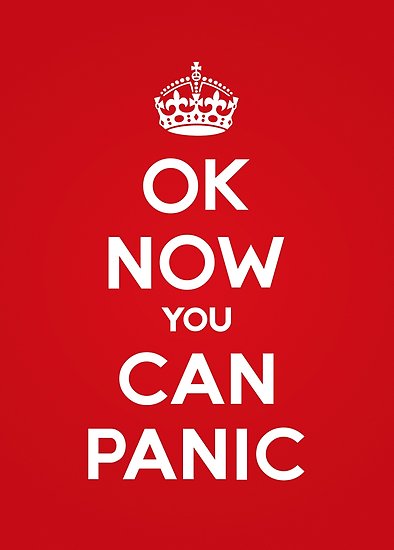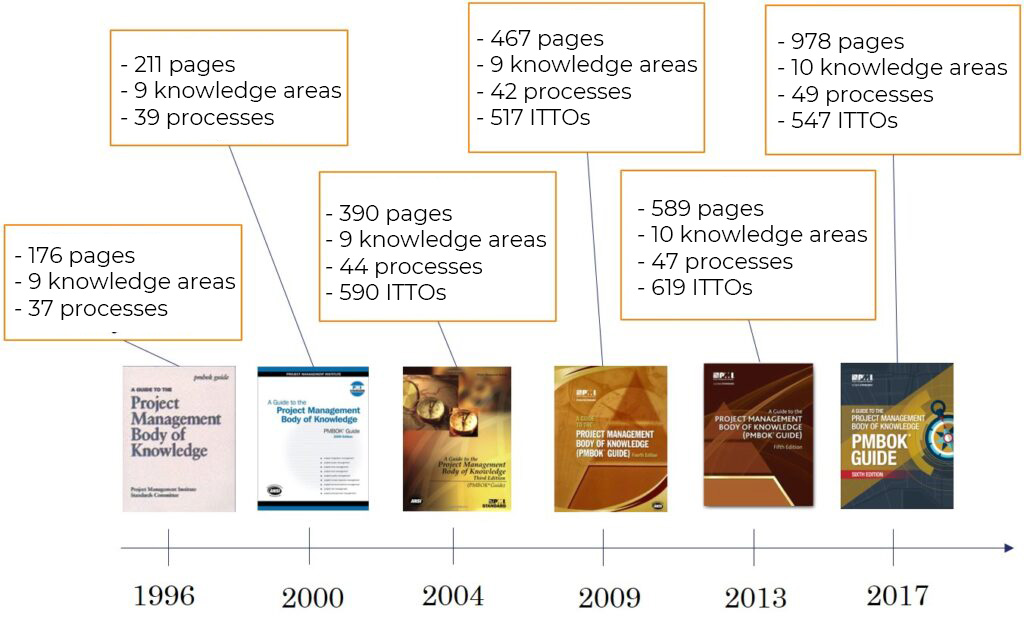PMBOK 7 writing in progress, big changes ahead
We previously reported that the PMP exam will change at the end of June 2020. While these changes are not insignificant, the really big things are expected with the release of PMBOK 7. What are the changes? When will they come into force? How does this relate to agility? How will this affect the PMP and CAPM exams? In this post we summarise the information that is currently known.

What is PMBOK and why is the new edition important?
The PMBOK Guide (Project Management Body of Knowledge) is the most comprehensive literature on the market covering project management processes and tools. The current 6th edition has evolved over the years to nearly 900 pages. The PMBOK is the core syllabus for the PMI-PMP and CAPM exams and is updated every 3-4 years according to the latest trends.
From an external, expert's point of view, the 6th edition included a number of small (almost self-serving) changes, but alongside all these, useful, practically important elements were introduced, such as the tasks of the pre-project period, agile elements, or the issue of continuous exchange of experience.
These changes are of particular importance for those preparing for the exam, as the content of the exam will change after certain dates, according to the new edition.
The 7th edition of the PMBOK may also bring unprecedented changes to the exam, which according to current information will have a completely new structure.
What can be expected in PMBOK 7th edition?
Each new version of the PMBOK is reviewed with PMI members before the PMI is published. We have had the opportunity to look at the planned content of the 7th edition, which suggests the following changes (of course the final content may differ):
Process-based publication to principle-based book
Perhaps the most important change is that the PMI plans to abandon the infamous process matrix, replacing the previous process-based approach with a principle-based approach. This is presumably intended (and also has the great advantage) that PMI will abandon the "manage projects along a process" principle, so that it will be much freer to apply what it has learned to adaptive, traditional and hybrid solutions. Although PMI has always advocated that the processes described in the PMBOK may require customisation, there is now perhaps an even greater focus on "common sense", so that a step is only performed or a document produced if it has real, tangible value to the project. This can make what is often thought of as an over-documented process simpler and more efficient.
Expanding methodological trends
The PMBOK has so far (even if not fully communicated by PMI) been primarily aimed at the traditional project management orientation. The 7th edition is expected to expand in this area as well, i.e. it will be more open towards adaptive and hybrid solutions. Although the 6th edition also introduced a supplementary Agile Guide, in our opinion it is not very practical and only scratches the surface (which is why we do not recommend anyone to prepare for the PMI-ACP exam solely from this. We hope that with the 7th edition, PMI can put more focus on practicality and the elements that may arise in agility.
The emergence of the hybrid approach is an exciting issue, if PMI can avoid being a mere mix of roles and tools and can guide and manage the curriculum along the principles, it could even be a niche literature in the market.
The disappearance of process groups and knowledge areas
The PMBOK matrix has so far organised project management processes according to 2 dimensions, process groups and knowledge areas. There is a good chance that this will also change, with the knowledge domains being replaced by so-called "performance domains", which may cover topics such as team, stakeholders, life cycle, planning, uncertainty management, delivery, performance and project work. The process groups are likely to be replaced by 12 principles: stewardship, team, stakeholders, value, holistic thinking, leadership, customisation, quality, complexity, opportunities and threats, resilience and change management.

When will the new publication be published, when will the exam change (again)?
According to current information, PMI plans to release the 7th edition of PMBOK in Q4 2020, but this should be treated with caution, as in recent years (in line with a good project management organisation) quarterly delays have not been uncommon, and the exam change communicated for the end of June 2020 was originally scheduled to come into effect in 2019. This means that it is possible that the book will not be available until 2021.
A PMBOK change is always followed by an exam change. This is usually not realistic until six months after the book is published at the earliest, so our guess is that the exam will change sometime in Q2-Q3 2021.
So should I wait for the PMP/CAPM exam?
Don't wait to take the exam until PMBOK 7 is released if you don't have to. We always advise our participants to always test themselves against the current, known exam syllabus if possible.
On the one hand, the current system means that, thanks to the many previous candidates and participants, we have experience of the style and likely composition of the questions, and the questions are more widely "tested", so there is less chance of difficult questions slipping into the exam.
We still advise our March group to try to take their exams before July if possible, but of course we will also be presenting the changes for the end of June 2020 on this programme.

What does the planned change mean from the training side?
On the one hand, it is a lot of work, as we have to process the new material within a short time after its release, and organise it into a practical programme that covers the material for the exam. This may also cause a time change, it is a challenge to cover the material of the current PMBOK 6th edition in 3 classroom days.
What we certainly don't want to change is the exam focus, i.e. we still want to help participants with tests and other support materials we have prepared.
We believe that the new curriculum will be a challenge for many coaches, as professionals who have not encountered agile teams before, and have only learned about agility from books, will have less credibility. It is perhaps not an exaggeration to say that the place of agile delivery at an organisational level should be sought alongside traditional trends, which is precisely why (although the current curriculum focuses much less on this) we insist in our current PMP/CAPM coaching that at least one agile overview is included for 1-2 hours. We believe that this will broaden the horizons and knowledge of project managers brought up on traditional trends.

 Designabc
Designabc